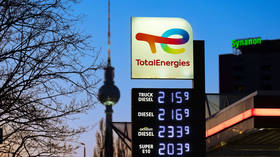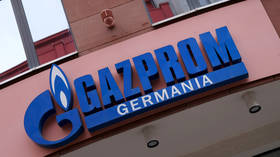Europe's top economy faces worst cost of living crisis in decades – govt data

The inflation rate in Germany jumped to a more than 30-year high, and is expected to rise by 7.3% in March compared to the same period last year, according to preliminary data released by the German Federal Statistics Office (Destatis) on Wednesday. Consumer prices will also be 2.5% higher compared to February, data shows.
“The prices for natural gas and mineral oil products have again risen noticeably and are having a significant impact on the high inflation rate,” Destatis explains, adding that the inflation rate was also similarly high in West Germany in 1981, nearly a decade before it was reunited with East Germany in 1990 to form the current state.
The statistics office also cites supply bottlenecks due to disruptions in supply chains caused by the coronavirus pandemic as a contributing factor to the significant price increases. Final inflation figures for March will be released on April 12.
Uncertainty over energy supplies and rising costs have also led to Germany – Europe’s largest economy – slashing its 2022 growth forecast from the predicted 4.6% to 1.8%. “We were already having a bad time thanks to the omicron wave and now things are even more bleak,” DW quoted Monika Schnitzer from the German Council of Economic Experts as saying. If the flow of Russian energy were to stop, the post-Covid economic recovery would be in jeopardy, she added.
Earlier this week, Germany triggered its gas emergency plan, declaring an ‘early warning’ for potential disruption or stoppage of energy supplies from Russia. The step was taken ahead of Thursday’s deadline set by Russia for “unfriendly countries,” which includes Germany and the rest of the EU, to begin paying for gas in rubles instead of dollars and euros.
The Kremlin said on Wednesday that the transition to the new payment regime will not be abrupt and that importers of Russian gas will be allowed time to switch currencies.
For more stories on economy & finance visit RT's business section













